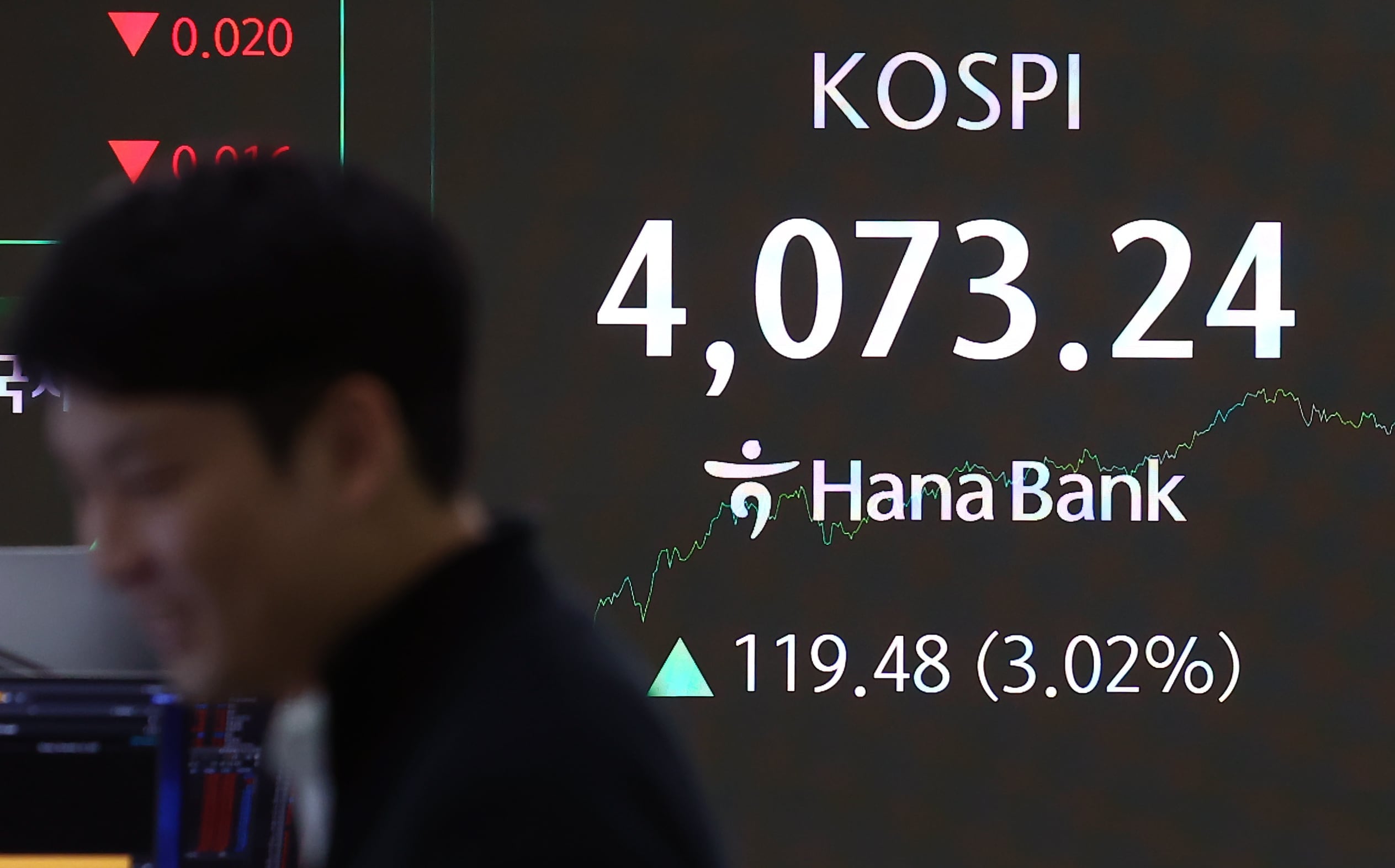Surge in Credit Loans at Major Banks
The balance of credit loans, including minus accounts, at major banks has seen a significant increase of over 1.18 trillion won within just one week this month. This surge is attributed to individual investors engaging in “debt investment,” where they use borrowed money to invest in the stock market. The KOSPI reached the 4,200 range for the first time in history, and there has been a noticeable rise in the use of credit loans due to stricter regulations on mortgage loans.
According to the banking sector, as of the 7th, the balance of household credit loans at the five major banks—KB Kookmin, Shinhan, Woori, Hana, and NH Nonghyup—stood at 105.9137 trillion won. This marks an increase of 1.1807 trillion won from the end of October (104.7330 trillion won), surpassing the monthly increase of October (925.1 billion won) within a week.
Credit loan balances are typically volatile, but this month’s increase is the largest in four years and four months since July 2021 (1.8637 trillion won). By loan type, the balance of minus accounts surged by 1.0659 trillion won, while general credit loans increased by 114.8 billion won.
Link Between Credit Loans and Stock Investments
The rapid increase in credit loans is closely linked to individuals expanding their stock investments. While foreigners net sold 7.2638 trillion won worth of KOSPI stocks last week, individuals net purchased 7.4433 trillion won. Notably, on the 5th, when the KOSPI fell over 6% during trading, the balance of minus accounts surged by 623.8 billion won in a single day. As stock prices dropped, investors who felt FOMO (fear of missing out—a sense of anxiety that only they are not making money) when the index surged are believed to have viewed this as an opportunity to buy at lower prices and purchased stocks.
Record Highs in Credit Transaction Loans
The balance of credit transaction loans, a key indicator of “debt investment,” also reached a record high. The credit transaction loan balance refers to the amount investors have borrowed from securities firms using held stocks as collateral for stock investments and have not yet repaid. According to the Korea Financial Investment Association, as of the 7th, the balance stood at 26.2165 trillion won, surpassing the previous record set in September 2021 after four years and continuing to hit new highs for three consecutive days.
Regulatory Concerns and Apology
Vice Chairman Kwon Dae-young of the Financial Services Commission faced criticism for encouraging reckless investment by stating on a radio program on the 4th that “(debt investment) is a type of leverage.” He apologized at the National Assembly that day, saying, “I will be particularly cautious with my expressions.”
Key Points Summary
- Surge in Credit Loans: Major banks reported a significant increase in credit loan balances, reaching 105.9137 trillion won as of the 7th.
- Factors Behind the Increase: Individual investors are using debt investment strategies, driven by the rising KOSPI and tighter mortgage loan regulations.
- Volatility in Loan Balances: Credit loan balances are inherently volatile, but this month’s increase is the largest in four years and four months.
- Impact on Stock Market: The surge in credit loans is linked to increased stock investments, with individuals purchasing more despite market fluctuations.
- Record Highs in Credit Transaction Loans: The balance of credit transaction loans hit a record high, indicating growing reliance on debt for investment.
- Regulatory Response: A senior official apologized for comments that were perceived as encouraging reckless investment, highlighting concerns about the risks involved.
